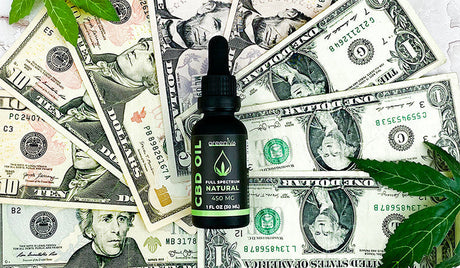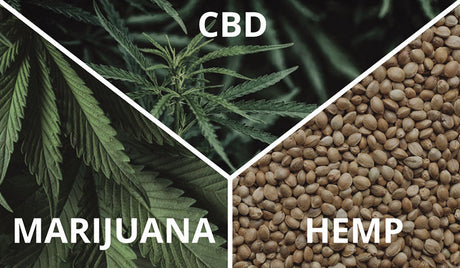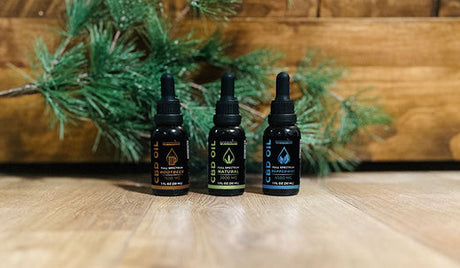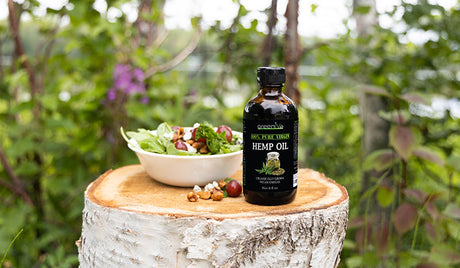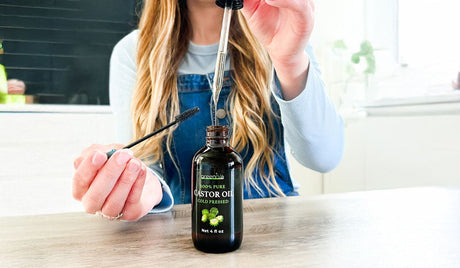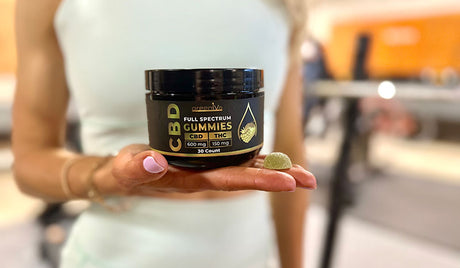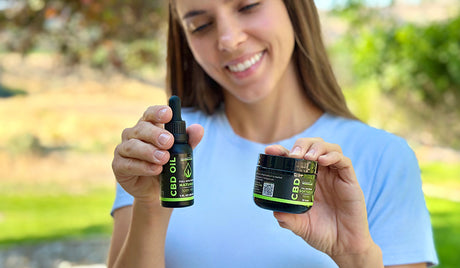Curious about CBD? You're not alone! With the growing popularity of CBD products for various health and wellness purposes, many people are eager to learn more about this cannabinoid and how it interacts with the body. A few common questions that often come up are: "How long does CBD oil stay in your system?", "Does CBD stay in your system?" and "Will CBD appear on a drug test?"
Whether you're a CBD enthusiast, a first-time user, or just curious about the science behind CBD, this blog post will delve into how CBD is metabolized, the factors that affect its clearance from the body, and what you need to know about CBD and drug testing.
Hopefully, this article will help you understand CBD better and how long it may linger in your system. Let's dive in!
CBD Basics
Cannabidiol (CBD) has gained significant popularity in recent years for its potential health benefits, including the possible improvement of symptoms related to sleep, mood, and discomfort. As more people turn to CBD as a natural remedy, we are often asked, "How long will CBD stay in your body?"
CBD is one of the many compounds found in cannabis plants, including hemp and marijuana. Unlike its counterpart, THC (tetrahydrocannabinol), CBD does not have psychoactive effects, which means it does not produce a "high" sensation.
CBD interacts with the body's endocannabinoid system (ECS), which plays a role in regulating various physiological processes, which in turn can help improve the symptoms we discussed above.

The duration of time that CBD stays in your system can vary depending on several factors. Factor. such as the method of consumption, dosage, frequency of use, and individual differences in metabolism.
Method of Consumption
Detecting CBD in your system can last several hours to several days. CBD can be consumed in many ways, including:
- Inhalation (smoking and vaping)
- Orally (edibles, capsules, gummies, etc.)
- Topicals (creams, lotions, etc.)
- Sublingual application (Tinctures, sprays, etc.).
Let's take a closer look at these different methods of CBD consumption. As well as how long CBD may stay in your system for each method:
Inhalation (Smoking or Vaping)
When inhaled, CBD enters the bloodstream through the lungs. After it will reach peak concentration quickly, usually within 5 to 15 minutes. However, the effects of inhaled CBD may last for a shorter duration, typically 2 to 3 hours.
CBD is rapidly metabolized, causing the effects to wear off quickly. Depending on the frequency of use, CBD may be detectable in urine for up to 3 days after inhalation.
Oral Consumption (Edibles or Capsules)
CBD can be consumed orally through edibles, gummies, capsules, etc. Once ingested, CBD must pass through the digestive system and be absorbed into the bloodstream through the liver. This process takes longer than inhalation, and the CBD in the product has a lower absorption rate.

CBD can take anywhere from 30 minutes to 2 hours to reach its peak concentration in the bloodstream. The effects of orally consumed CBD may last longer, typically 4 to 6 hours.
CBD that is ingested orally also goes through first-pass metabolism in the liver. CBD may be detectable in urine for up to 3 days to a week after oral consumption, depending on the dosage and frequency of use.
Topical Application (Creams or Lotions)
CBD can also be applied topically in creams, lotions, or oils and absorbed through the skin. When applied topically, CBD does not enter the bloodstream and does not stay in the system for a long time.
Its effects are localized and typically last for a few hours. CBD applied topically is unlikely to be detectable in urine or blood tests, as it does not enter the bloodstream in a significant amount of time.
Sublingual Administration (Tinctures or Sprays)
Sublingual administration involves placing CBD oil under the tongue, which is absorbed into the bloodstream through the sublingual glands. This method allows CBD to bypass the digestive system and liver, resulting in a faster onset of CBD's effects than oral consumption.
Sublingual CBD typically reaches its peak concentration within 15 to 30 minutes, and the effects of CBD may last for 4 to 6 hours. CBD that is administered sublingually may be detectable in urine for up to 3 days to a week, depending on the dosage and frequency of use.
Frequency of Use
Now that we have discussed the different methods of use let's move on to another factor: the frequency of the use of CBD. CBD may last longer in our system based on how often it is used. The more often CBD is taken, the longer it will stay in your system. CBD accumulates in the body, and it will take longer to leave your system if taken regularly.
Dosage and Metabolism
When considering how long CBD stays in our system, it's important to note that the amount of CBD we take at one time can play a factor. The higher the dose of CBD, the more the body metabolizes. The longer the metabolizing process takes, the longer the CBD stays in your system.

This is not an exact science because while you can control the dose, everyone has a different metabolism. Some metabolisms are faster, and some are slower. These differences will affect how quickly CBD gets digested and leaves our bodies.
CBD Drug Testing
If you've asked yourself the question how long will CBD stay in my system?" then you are probably wondering if the CBD will appear on a drug test. The answer to that question depends on what they are testing for and the type of test.
Some drug tests only test for cannabinoids, which, if you're taking a CBD product, will cause you to test positive for CBD, and you will fail the drug test. These tests are usually cheap over-the-counter drug tests.
Higher-end urine tests will typically only test for the cannabinoid THC. Workplace drug testing and parole officers will test for THC, not CBD. However, a CBD product containing THC could make you fail a drug test because CBD stays in your urine for several days.
Drug test screening comes in the form of blood and hair tests. These types of tests test for trace amounts of THC. These types of tests can test for THC for up to 90 days.
Full-spectrum CBD oil is known for containing THC, which, if taken, could cause you to fail a drug test. Products with 0.3 THC in them will always cause you to fail a drug test.
If this concerns you, Full-Spectrum products are probably not for you. The next best option would be to purchase Broad Spectrum or CBD isolate products. We also recommend finding reputable products that have been third-party tested so you can personally inspect THC levels.
Sum it up!
How long CBD stays in your blood will depend on factors like metabolism, the amount of CBD taken, the frequency in which CBD is used, and the type of CBD product. If you cannot have CBD in your system because of a work rule or other prohibiting factor, it's best to avoid those CBD products.
However, if you can have CBD in your system but cannot have THC, then all you have to do is stay away from CBD products with THC. If you are unsure if your product has THC, it's best to ask the company that made it for a third-party lab test sheet.
Most CBD companies provide third-party lab tests to their customer. Avoiding their products is best if they do not provide or refuse to share lab tests.
GREENIVE CBD PRODUCTS



